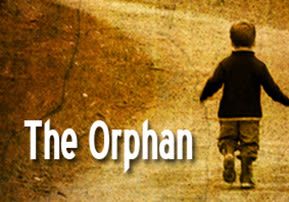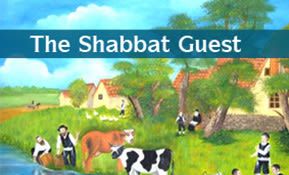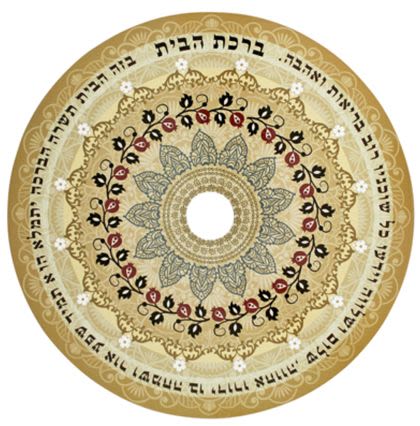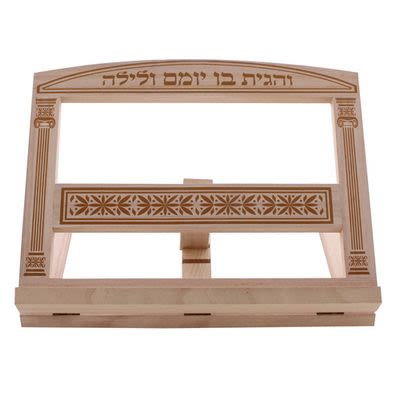“The Baal Shem Tov – Early Years”, Part 2
In last week’s episode, Reb Eliezer and his wife Rebbetzyn Sarah were informed by Eliyahu HaNavi that they would have a son that would guide the Jewish people…
Never had the Jewish community of Okup known such prosperity. The wheat grew plentifully in the fields all around this Polish village and the farmers, laden with money, came to buy all kinds of merchandise and goods. For the first time, there was a level of contentment among the Jews of Okup.
When did all the prosperity start? They villagers remembered clearly: it was soon after Reb Eliezer passed away – that holy tzaddik who always provided food for the poor at his home, especially on the Sabbath. Among themselves, the Jews of Okup agreed that only Reb Eliezer could be the cause of their new prosperity and good fortune. Now that he was in Heaven, he must be praying for them.
 In Reb Eliezer's house, however, there was no prosperity. His widow, Rebbetzyn Sarah and their five year old son Yisrael, who she affectionately called Srulic, didn't even have a crust of dark bread to eat.
In Reb Eliezer's house, however, there was no prosperity. His widow, Rebbetzyn Sarah and their five year old son Yisrael, who she affectionately called Srulic, didn't even have a crust of dark bread to eat.
Still, they accepted everything cheerfully. For the next week, they sat in mourning. Then Rebbetzyn Sarah began taking little Srulik to the village synagogue, so that he could recite kaddish, the mourner's prayer, for his father's soul in heaven.
That year, little Srulik was the only one saying kaddish for a departed one in Okup. Soon, he became known as "the little angel." Never had the worshippers heard anything so sweet as the kaddish chanted by this child, in all his innocence and simple faith. Indeed, when he first began saying the prayer in the synagogue of Okup, no one's eyes remained dry. The Jews praying there wept uncontrollably to think of Reb Eliezer gone from them forever, and such a little boy left an orphan, with no father to look after him.
But as the days passed, they became accustomed to the sound of the child's angelic prayer. And besides, with the new, growing prosperity in the village, everyone wanted to get back to their business immediately after the morning prayers. There was money to be earned.
However in Heaven, the sweet, innocent prayer of the little boy made a powerful impression. So beautiful was the sound of his prayer, which during the morning and evening prayer-services, angels of mercy filled the synagogue of Okup to listen to his kaddish.
Only angels, however, can see what angels do. The little boy and his mother Sarah knew nothing of this. It became their custom that early every morning, Sarah awakened her child: "Come, my little angel, the time has come for the morning prayers."
Their little cottage was at the very edge of the village, quite far from the synagogue. Every morning, littlw Srulik and his mother walked hand in hand down the long winding road to Shule. And Srulik trotted happily along, reciting the first paragraph of Shema Israel, that his mother was then teaching him.
When did anyone ever hear so exquisitely enchanting a sound as little Srulik chanting the holy words of Shema Israel? "And you shall love the L–rd your G–d with all your heart and with all your soul and with all your might …"
Srulik's chanting awoke the good Jews of Okup from their sleep, and caused them to rush to be in the synagogue on time. After all, they had no time to lose. Soon, their customers would come flocking to their stores and shops, wanting to buy so many things.
In fact the people of Okup were so busy with their businesses and their prosperity that there was no time to worry about others. There was not a thought to how were the widow and the orphan were managing. or if there was enough food for the two of them?
Actually, Sarah found a way to get along. She sold clothing and household articles to the neighboring farmers, and bought food for the child and herself.
One day, some "guests" came to the village: strangers who were passing through. They spent the night in the "guest room" connected to the synagogue (which the community kept just for this purpose). Very early in the morning, the guests rose and went to the little study room next to the synagogue; and there they sat down to study Torah.
To be continued.
***
Tzvi Meir Cohn attended Yeshiva Hadar Hatorah in Crown Heights, Brooklyn after completing his university studies in Engineering and Law. While studying at the Yeshiva, he discovered a deep connection to the stories and teachings of the Baal Shem Tov. His many books about the Baal Shem Tov can be found in the Breslev Store. He can be contacted at howard@cohnpatents.com.


 In Reb Eliezer's house, however, there was no prosperity. His widow, Rebbetzyn Sarah and their five year old son Yisrael, who she affectionately called Srulic, didn't even have a crust of dark bread to eat.
In Reb Eliezer's house, however, there was no prosperity. His widow, Rebbetzyn Sarah and their five year old son Yisrael, who she affectionately called Srulic, didn't even have a crust of dark bread to eat.












Tell us what you think!
Thank you for your comment!
It will be published after approval by the Editor.